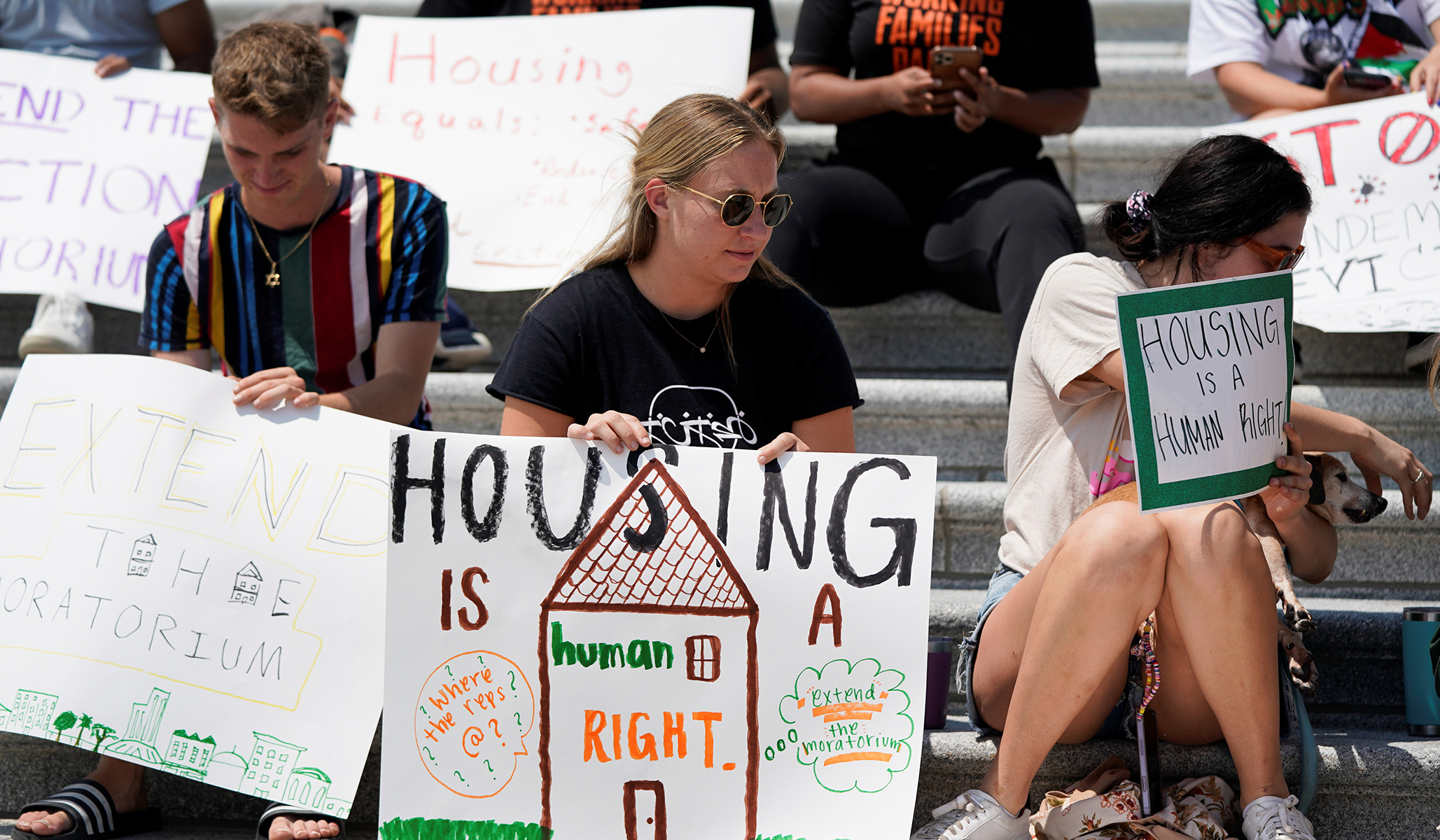The Supreme Court’s Welcome Rebuke of Biden’s Lawlessness

Much of the Supreme Court’s majority opinion striking down the CDC’s nationwide eviction moratorium reads as if it came directly from The Federalist Papers. “We expect Congress to speak clearly,” the per curiam decision reads, “when authorizing an agency to exercise powers of ‘vast economic and political significance.’” The Constitution, it adds, “does not permit agencies to act unlawfully even in pursuit of desirable ends.” “If,” it concludes, “a federally imposed eviction moratorium is to continue, Congress must specifically authorize it.”
If this language sounds familiar, that’s not solely because it smacks of Separation of Powers 101, but because, back in June, Justice Kavanaugh decided that “clear and specific congressional authorization (via new legislation) would be necessary for the CDC to extend the moratorium past July 31.” In response, President Biden announced that he intended to do it anyway — not because he believed that Kavanaugh was wrong, but because he hoped that doing so would accord him the “ability to, if we have to appeal, to keep this going for a month at least. I hope longer.”
When added to the slam-dunk nature of the case, such open and cynical defiance should have been enough to prompt all nine justices to put the executive branch back in its place. Alas, when the Court finally heard the case this week, only six justices did their jobs. The other three failed — and, worse still, contrived a legal argument that turns the American system of government squarely on its head.
Writing for the dissenters, Justice Breyer suggested that “if Congress had meant to exclude these types of measures from its broad grant of authority, it likely would have said so.” This, of course, is not how the law works in the United States. Absent those explicitly enumerated in Article II of the Constitution, the executive branch has no power until it is given it by Congress; at all levels of government, we use statutes to list what governments may do, rather than itemize what they may not. There is simply no limiting principle in Breyer’s approach. Because the law allows the CDC to take “other measures, as in [its] judgment may be necessary,” he would have permitted it to engage in the superintendence of rental agreements. But, as the majority pointed out, the law specifically lists a number of areas in which the CDC may act, and regulating evictions is not among them. If that does not matter, they note, “it is hard to see what measures this interpretation would place outside the CDC’s reach.”
In his dissent, Breyer complains about the circumstances in which the decision was made.
“These questions,” he writes, “call for considered decisionmaking, informed by full briefing and argument.” As a substantive matter, that is simply not true in this case; the merits here were abundantly obvious, and the fact that the “lower courts have split on this question” is more an indictment of the unseriousness of many of our judges than an indication that the matter at hand was a thorny one. But even if it were, Biden’s extraordinary behavior foreclosed the possibility of a more orderly legal process. In the days following the Court’s initial opinion, Biden made it clear that he understood the CDC had acted illegally and that it could not continue to do so. He had, an aide confirmed, “not only kicked the tires,” but “double, triple, quadruple checked.” “The bulk of the constitutional scholars,” Biden said himself, “say it’s not likely to pass constitutional muster.” And yet he ordered it anyway, while publicly admitting that he was gaming the system to buy time. There is not a court in the world that would have taken that sitting down.
That Biden has been thwarted in his attempt to usurp the role of Congress is welcome. That he was not uniformly chastised is not. There are certain moments in American political life in which an institutional reprimand is necessary, and this was one of those times. That, instead, the president will be able to point to the Court and pretend that this case represented a quotidian ideological dispute is a great shame. And, as Biden’s presidency lurches on, and his power wanes as the consequences of his mistakes pile up, both desperation and his innate contempt for the Constitution will be likely to encourage him to attempt a similar ploy once again. We have been warned.





Comments are closed.